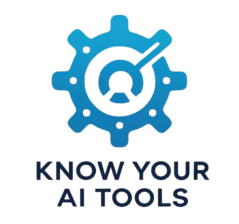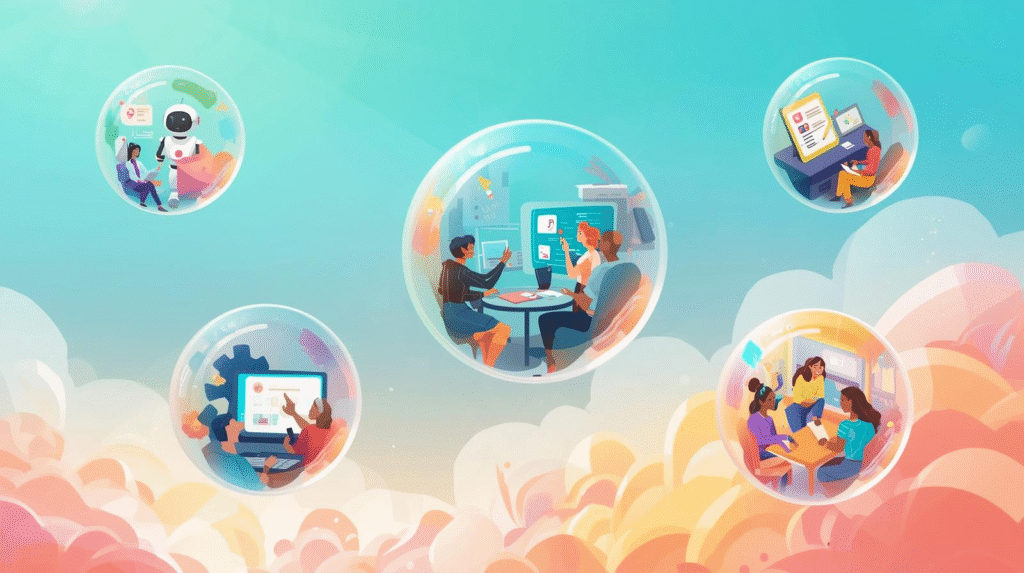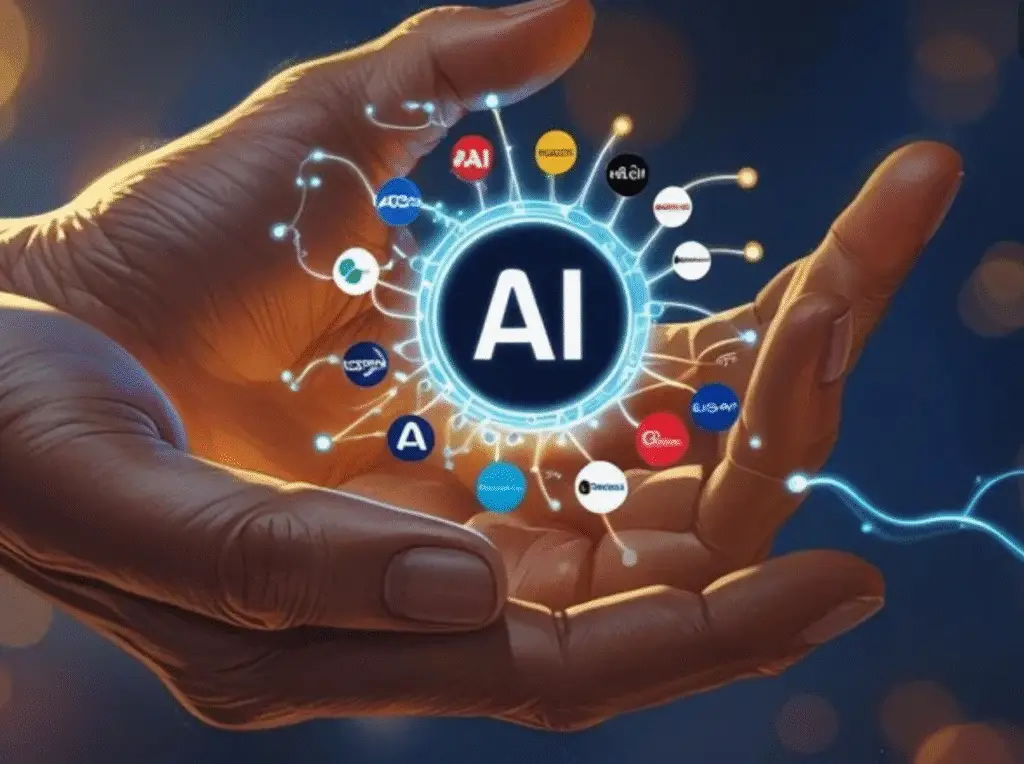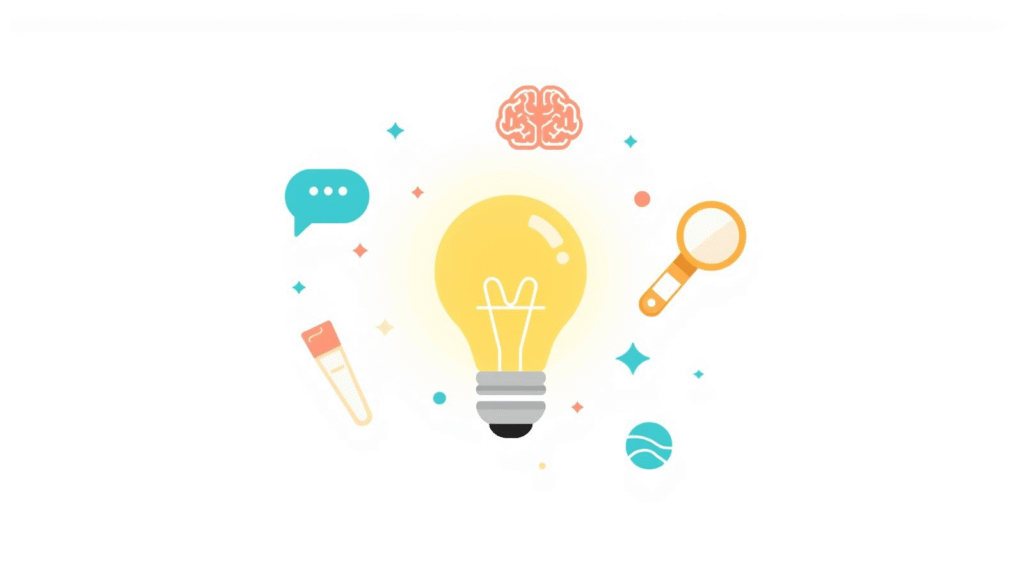Artificial Intelligence (AI) has gone from being a sci-fi concept to something most of us use every day without even realising it.
Voice assistants, recommendation systems, grammar checkers – they’re all powered by AI. But while it already feels like a big part of life, we’re only just getting started. AI is evolving quickly, and it’s going to change how we work, learn, create, and connect in ways we’re only beginning to imagine. The future of AI can seem overwhelming, but for beginners, knowing what’s on the horizon can make it feel less intimidating and more exciting.
Here are five key predictions for how AI will shape the future and what they might mean for you.
1. AI Will Become Invisible (and Everywhere)
Right now, using AI often feels like a separate task. You open a chatbot, type in a request, and wait for a response. However, over the next few years, AI is likely to disappear into the background. Instead of being something you have to go and use, it will quietly power the tools you already rely on every day. Think of how spell-check just works in your word processor – you don’t think about it, but it saves you time constantly. Future AI will work the same way. Your calendar might automatically rearrange your schedule based on how long tasks actually take. Emails might draft themselves in the background, ready for you to approve.
Your favourite apps will likely become “smart” without you having to learn anything new. For beginners, this means you won’t have to master complicated AI tools to benefit from them – they’ll simply become part of the apps you already use.
2. AI Will Personalise Everything
One of AI’s biggest strengths is pattern recognition, and in the future, it will use that ability to make almost everything more personal. Instead of one-size-fits-all content, services, and learning materials, you’ll get exactly what suits you best.
Education platforms might build customised learning paths based on how quickly you understand each topic. Health apps could give personalised nutrition and fitness plans that adapt to your energy levels and lifestyle. Even shopping might become more tailored, showing you only products that fit your preferences, budget, and habits.
This personalisation will save time, reduce overwhelm, and make everyday experiences feel more effortless. For beginners, it’s a sign that learning and using AI will only get easier — because AI will meet you where you are.
3. AI Will Become a Creative Partner
Right now, many people use AI to speed up practical tasks like writing emails or organising notes. But the future will see AI evolve into a true creative partner. It will help generate ideas, design visuals, draft scripts, compose music, and even edit videos. Instead of replacing human creativity, it will amplify it.
Imagine brainstorming a business name with an AI that understands your style, or designing an entire brand in minutes with AI-generated mockups, colour palettes, and taglines. We’re already seeing the beginnings of this with tools like Canva’s Magic Design and AI image generators, and it’s only going to become more advanced and accessible.
For beginners, this means you won’t need years of design or writing experience to bring your ideas to life – AI will handle the technical side while you focus on the vision.
4. AI Will Reshape Jobs (and Create New Ones)
A lot of people worry that AI will take jobs, and it’s true that it will change how many jobs are done. Repetitive tasks like data entry, scheduling, and customer support are already being automated. But history shows that new technology often creates as many roles as it disrupts.
When social media arrived, it created brand-new careers in digital marketing, content creation, and social media management – roles that didn’t even exist a few years earlier. The same will happen with AI. There will be a growing demand for people who can guide, manage, and creatively use AI tools in their fields. For beginners, this means learning basic AI skills now can give you a real advantage later. You don’t need to become a programmer – just being confident using AI to support your work will be a valuable skill.
5. AI Will Be Held to Higher Standards
As AI becomes more powerful, there will be increasing focus on making sure it’s used safely, fairly, and responsibly. Right now, there are valid concerns about bias, misinformation, and privacy. In the future, expect more rules, regulations, and ethical guidelines for how AI is built and used.
Governments, companies, and researchers are already working on standards to make sure AI benefits everyone and avoids harm. This is important for beginners because it means the tools you use will become safer and more transparent over time. You’ll be able to see how AI reaches its answers and be more confident that it’s accurate, fair, and trustworthy.
Final Thoughts
AI is evolving fast, but that doesn’t mean you have to run to catch up. The future of AI is about making technology more supportive, more personal, and more invisible – not more complicated. You won’t need to master advanced coding or algorithms. Instead, you’ll just need to be open to experimenting and curious about how it can help you.
If you want to see how AI is already shaping your everyday life, read How AI Is Changing Everyday Life. And if you’d like to start building your own beginner skills now, try How AI Actually Learns: A Beginner’s Guide to Training Data and Patterns.
For a clear external overview, you can also explore the World Economic Forum’s AI future trends report.



